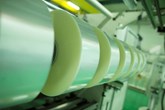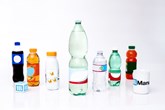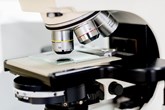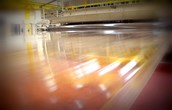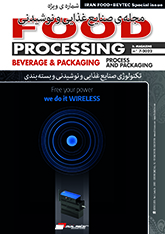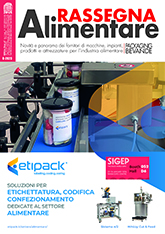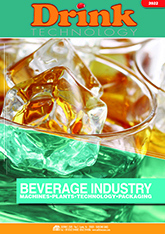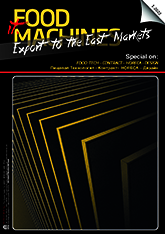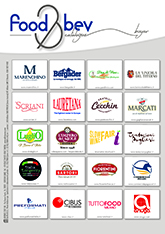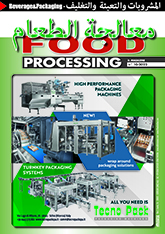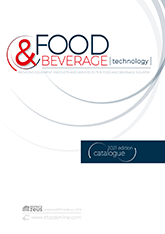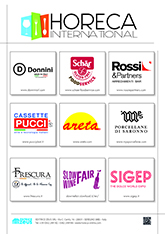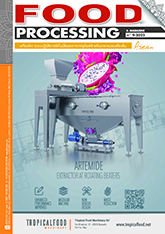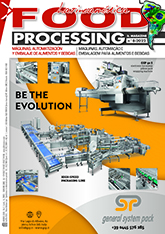
MANUCOR SPA - SUSTAINABLE FLEXIBLE PACKAGING
It starts up in 1988 as an Italian company with an international scope, actually with five production lines, for a nominal capacity of 100,000 ton per year.
In 2019 Manucor integrated into the team the Russian giant of petrochemical industry Sibur that has acquired the 50% of the share capital through the subsidiary Biaxplen.
The synergies expected from the joint venture are focused on raw materials (Sibur is a resin producer for the BOPP industry), sales on the European market of Sibur products and the development of R&D area for the creation of eco-sustainable products which favour recycling in a circular economy perspective.
The consolidation of Manucor and Biaxplen certifies them as the second European BOPP producer with nominal capacity of 300,000 ton per year.
In Manucor there is a strong vision that can be summed up in “Taking responsibility”. Manucor supports the concept that a manufacturer should create and maintain the conditions under which the communities and nature can exist in productive harmony. Both sustainability and financial goals can be achieved simultaneously. It does not have to be a choice of one or the other.
Sustainability reduces overall costs, improves productivity, minimize waste and strengthens relationship with customers involved in the responsible vision of the business model.
Manucor have always encouraged and realized creative innovations that reduce the environmental footprint of packaging and represent significant reductions in the consumption of raw materials and energy.
Manucor’s approach could be summarized in “3 R”: reduce, recycle and reuse.
In collaboration with major converters, vertical packaging has been developed and implemented, eliminating the use of wood and reducing logistics costs. Reels are no longer lying on wooden pallets with strapping and stretch film but are packed vertically, secured at the ends with thin disks and wrapped with protective films. A profound evolution that required teamwork and ad hoc investments
With vertical the packaging weight of the film reels has been reduced from about 40 kg to 1 kg. Elimination of pallets and wooden flanges results in less weight and overall dimensions allowing a better optimization of the truck: the number of trucks is on average reduced by 25%, thus less fuel is needed for transport and therefore less harmful emissions into the atmosphere, less packaging material and less waste remains.
Manucor also developed films with reduced thicknesses without compromising the preservation of food. Thinner films are equivalent to a reduction of the raw material used, higher yield, less energy usage for transport therefore emissions. But Manucor took it a step further by developing films that significantly extend shelf life and prevent decay, thus reducing food waste.
Preserving wood and optimizing raw materials through integrated processes and continuous investments in equipment and research Manucor managed to minimize the use of raw materials and fossil fuels, and to maximize regeneration of resin and its reuse.
It has been implemented an effective and determined recovery and recycling of wooden packaging materials (pallets and flanges). Eurostat has calculated that in Europe the waste of wood is 15% (glass 20%, paper 40%). At Manucor, the wood packaging materials are collected from our customers and repaired, allowing a re-use of up to 90% of recovered materials.
A continuous recovery cycle of all plastics, investments in resin regeneration installations, internal reuse of the regenerated resin at the highest levels in the field (up to 20% -30% of the raw material) and sales for external reuse of film and resin scraps have allowed to almost clear plastic materials for disposal.
Furthermore since 1999 Manucor has been investing in energy saving technologies such as cogeneration, capturing and using wasted heat for the generation of electricity.
For over 20 years, the energy needs of the plant have been provided by a trigeneration plant installed inside and completely enslaved to it. Until 2012 the electrical utility was powered by the 20 kV MV (medium voltage) network: its countless discontinuities (voltage dips, micro and macro interruptions) with an average of about 200 events/year seriously threatened the production continuity of the factory and questioned its profitability. In this regard, the use of permanent off-grid operation of the plant has proved to be strategic and, by working without any external connection, it has fully managed to protect the production of the plant from network defects. Starting from 2012, to continue to achieve this advantage without having to bear heavy energy costs, a substation was built close to the local primary substation which made it possible to connect the plant to the 150 kV National Transmission Grid (NTG), characterized precisely by full quality of electrical supply. In the logic of the continuous efficiency of the plant, in December 2019 the production groups of the plant were replaced by new ones with greater power and greater efficiency (not less than 43%).
The replacement also involved the alternators and the recovery boiler and this laid the foundations for submitting an application to the GSE to recognize the characteristics of the CAR (High Performance Plant) and reward the energy savings that will be achieved with the recognition of an important package of TEE (Energy Efficiency Certificates) for the 10 years following the realization of the investment. Energy saving projects, which have the aim of making the company's business more sustainable, are a fundamental element of Manucor's policy: the installation of the plant has been followed over the years by the use of refrigerating machines with centrifugal compressors, the arrangement of the main drives under inverters, the conveyance to the heat production furnaces of the extrusion areas. On this road Manucor will continue realizing lighting pavilions projects using LED, heating the production spaces with heat at thermodynamically insignificant temperatures, cooling the production water in free cooling and with machines that, using a magnetic leavening centrifugal compressor, have double digit performance (COP> 10).
Although rumours about the world of plastics would lead to think to its total elimination, BOPP is currently the only technically valid solution for creating single-material packaging, therefore “full PP”.Manucor can offer a wide range of low-thickness and high-yield products to help replace PET and aluminium in mix structures and therefore reduce their environmental impact.











